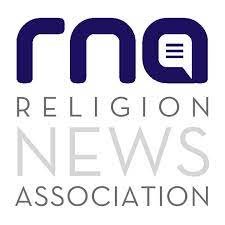Advent resources for the current conflict in Gaza
Pathways, a Christian organization committed to promoting constructive approaches to the Israel/Palestine conflict and countering antisemitism, has produced a series of resources and videos to help clergy and congregations address the numerous challenges arising from the current conflict in Gaza and the alarming rise of antisemitism.
“Today when antisemitism is on the rise, it is more important than ever that religious leaders play a positive role in countering double standards and stereotypes, especially those grounded in scripture and theology,” said Todd Stavrakos, Chair of Pathways and Pastor at the Gladwyne Presbyterian Church in Philadelphia, PA.
The theme of the first package for Advent was the desire for God to act definitively in a world that desperately and hopefully waits for that action. Focusing on (“Third”) Isaiah’s cry out of the post-exilic wasteland and in the psalmist’s repentant plea and promise of faithfulness, some interpretations carry the unfortunate danger of playing into anti-Jewish and antisemitic stereotypes that still function, often unconsciously, in our society. These include the idea that the Old Testament God is angry and should be feared. Two others are that (1) Judaism is more concerned with this world and gaining earthly advantages than it is with spiritual life and health and (2) that God abandoned the Jewish people when “they rejected Jesus” and henceforth only those who believe in Jesus have any eternal hope.
None of these is accurate to Judaism or to the Christian faith. We can avoid going down these paths by noting and even emphasizing the continuities between the faith of biblical Israel and that of the New Testament writers. Both Isaiah and the psalmist anticipate a day of God’s saving grace, with mercy that puts sin and faithfulness behind them, bringing restoration and joy. Mark’s vision of the day of the Lord, the coming of the Son of Man, derives directly from the prophet Joel. The book of Isaiah certainly speaks of a universal hope for God’s reign (2:2-4). Paul speaks in Romans of “the form of teaching to which you have been entrusted” (6:17), implying that there are other “forms of teaching” to which God has entrusted others. This is consistent with his emphasis on God’s equal care and saving power for Jews and Gentiles and with the words of Jesus in John’s gospel that “I have other sheep who are not of this flock” (10:16).
The current conflict in Gaza has created more opportunity where these antisemitic tropes and interpretations can be propagated – to tragic effect, as we see in the alarming rise in antisemitism in recent months. In this world where soundbites and slogans drown out real discourse, it is more important than ever that clergy and community leaders avoid reinforcing unhealthy and inappropriate stereotypes and bias.
Said Pastor Peter Pettit, co-facilitator of this series: “The scale of the humanitarian suffering in this current fight in Gaza, and the complexity of achieving a fair and just resolution or path to peace, has unfortunately created fertile ground for the pernicious influences of antisemitic stereotypes or understanding of Scripture, as well as a grasping onto overly simplistic approaches that offer neither achievable solutions or just response to real-world examples of good and evil. We hope that clergy will use these resources to advance a different message.”
A total of 4 videos and packages will be available. To access these resources, visit and sign up at pathways4peace.org
These resources were made possible by a grant from the Shine A Light Foundation, which seeks to add more light to the world during the Chanukah season.
Pathways for Middle East Peace is a nonprofit educational organization that works to support collaboration between mainline churches and the Jewish community. Pathways advocates for peace and reconciliation through dialogue and building relationships. While the world seeks to build walls and silos, we believe that Christ has created a pathway for us through the example of His life, ministry, death and resurrection: to build community by bringing people together.
###
Contact:
Todd Stavrakos
Pathways
2672510459
pastortoddgpc@comcast.net
Disclaimer: The views and opinions expressed in this article are those of the authors and do not necessarily reflect the official policy or position of the Religion News Association.
